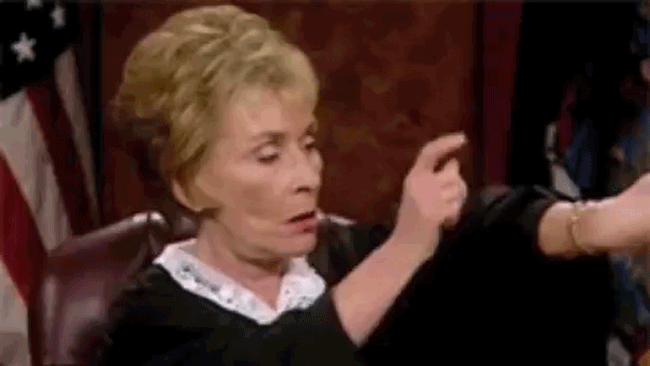Leadership Lessons from Judge Judy: The Power of Directness, Discernment, and Accountability
When discussing leadership, we often look to corporate executives, political figures, or military strategists. But true leadership principles transcend industries, and some of the most valuable lessons can come from unexpected sources like Judge Judy Sheindlin. While she is known for her no-nonsense demeanor in the courtroom, her approach provides key takeaways for leaders in any field. Here are some leadership lessons we can learn from her style of decision making, questioning, and holding others accountable.
1. Ask the Right Questions and Dig Deeper
One of the most powerful tools in a leader’s arsenal is the ability to ask the right questions. Judge Judy doesn’t settle for surface level answers; she probes deeper to get to the truth. Leaders must do the same when analyzing problems, making strategic decisions, or assessing team dynamics. Instead of accepting vague responses, great leaders push for clarity, ensuring they have the full picture before making a judgment. This ability to discern between fluff and substance is what separates good decision makers from great ones.
2. Cut Through the Noise with Direct Communication
Judge Judy is known for being direct. She doesn’t waste time with unnecessary pleasantries when there is a job to be done. In leadership, clarity is key. Leaders who sugarcoat feedback or dance around issues often create confusion. Being straightforward while still respectful ensures that everyone understands expectations and objectives. Whether in high stakes negotiations or daily operations, a leader's ability to communicate clearly prevents misunderstandings and keeps teams aligned.
3. Hold People Accountable
One of Judge Judy’s most defining qualities is her commitment to accountability. She doesn’t tolerate excuses, and she expects people to take responsibility for their actions. In leadership, accountability is crucial. Whether managing a team, overseeing a project, or driving an organization’s vision, leaders must establish a culture where people own their work, follow through on commitments, and face consequences when necessary. Accountability breeds trust, reliability, and long term success.
4. Stay Unshakable Under Pressure
In her courtroom, Judge Judy faces emotional outbursts, conflicting narratives, and attempts to manipulate the situation. Yet, she remains focused, unshaken, and in control. Leaders must maintain composure in high pressure situations. Whether dealing with crises, difficult stakeholders, or organizational challenges, the ability to remain calm and decisive under pressure strengthens credibility and reinforces confidence among teams.
5. Balance Fairness with Toughness
While Judge Judy is known for her tough exterior, she is also fair. She listens carefully, evaluates evidence, and makes decisions based on merit, not emotion. Leaders must strike a similar balance by being firm when necessary but also ensuring fairness in decision making. A leader who is too lenient may lose respect, while one who is too harsh may create resentment. The key is consistency, holding everyone to the same standard while making decisions that reflect integrity and equity.
6. Trust Your Instincts but Back Them with Facts
Judge Judy’s years of experience allow her to make snap judgments with impressive accuracy, but they are always backed by logic and facts. Similarly, great leaders develop strong instincts over time, but they do not rely solely on intuition. They verify information, analyze data, and use sound reasoning to support their decisions. Leaders who trust their judgment while still valuing evidence are better equipped to navigate complex situations.
Final Thoughts
Judge Judy’s leadership style may be unconventional, but it is undeniably effective. Leaders across industries can benefit from her ability to ask the right questions, communicate clearly, hold people accountable, remain composed under pressure, balance toughness with fairness, and make well informed decisions.
True leadership is not about being the loudest voice in the room. It is about having the discernment to see through distractions, the confidence to stand by one’s decisions, and the wisdom to lead with integrity. Judge Judy exemplifies these traits, reminding us that leadership is not just about authority but about clarity, decisiveness, and unwavering standards.
